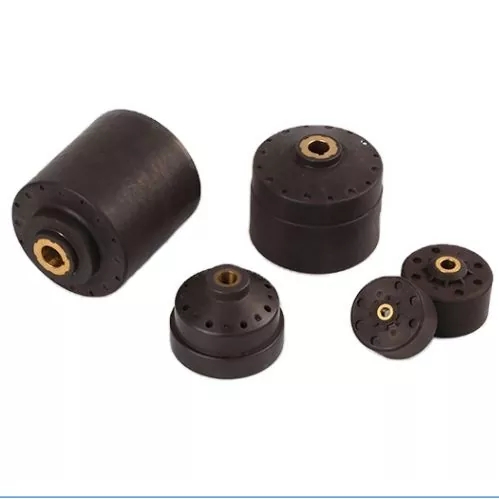Injection molded magnets, also known as injection molded magnetic materials, possess specific characteristics that make them unique and suitable for a range of applications. Here are some key characteristics of injection molded magnets:
Design Flexibility: Injection molding allows for the production of magnets with complex shapes and intricate details. This versatility enables the design of magnets that can fit specific application requirements, such as custom shapes, contours, and integrated features.
High Precision and Consistency: Injection molding processes provide excellent precision and consistency in the production of magnets. This results in magnets with tight dimensional tolerances and consistent magnetic properties, ensuring reliability and uniformity in performance.
Wide Range of Magnetic Properties: Injection molded magnets can be formulated to exhibit a wide range of magnetic properties, including different magnetic strengths (e.g., from low to high coercivity) and temperature stability. This allows for customization based on the desired magnetic characteristics for the specific application.
Excellent Magnetic Performance: Injection molded magnets can offer strong magnetic performance, such as high magnetic flux density (B), high coercivity (Hc), and high magnetic energy product (BHmax). This makes them suitable for applications requiring strong magnetic fields or high magnetic forces.
Corrosion Resistance: Injection molded magnets can be formulated with materials that offer excellent resistance to corrosion, ensuring long-term durability and performance in various environments, including humid or corrosive conditions.
Lightweight: Injection molded magnets are typically lightweight compared to traditional magnet materials, such as ceramic or neodymium magnets. This makes them advantageous for applications where weight reduction is crucial, such as in automotive, aerospace, or portable electronics.
Cost-Effective Production: Injection molding processes allow for high-volume production of magnets with reduced material waste, making it a cost-effective manufacturing method. The ability to produce complex shapes in a single production step also contributes to cost savings.
Good Thermal Stability: Injection molded magnets can exhibit good thermal stability, enabling them to retain their magnetic properties over a wide temperature range. This characteristic is important for applications subjected to temperature variations or high operating temperatures.
Electrical Insulation: Injection molded magnets can be designed with insulating properties, making them suitable for applications where electrical isolation is required. This allows for their integration in electrical or electronic systems without causing interference or short circuits.
Versatile Application Range: Injection molded magnets find application in various industries and sectors, including automotive, electronics, consumer goods, medical devices, industrial equipment, and more. They can be used in motors, sensors, actuators, magnetic assemblies, magnetic couplings, and other magnetic systems.
It's worth noting that the specific characteristics of injection molded magnets can vary based on the magnet material used, such as ferrite, neodymium-iron-boron (NdFeB), or other magnetic compositions. Additionally, magnet performance and properties can be tailored to meet specific application requirements through material formulation and magnet design optimization.
